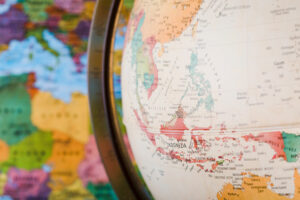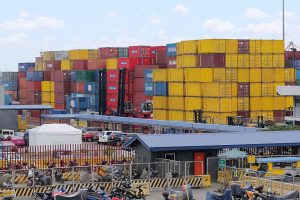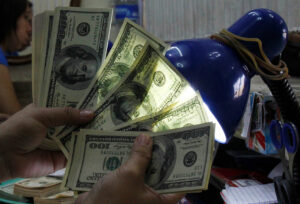White-collar Filipino workers feel pinch of price increases

By Kyle Aristophere T. Atienza, Reporter
SOARING PRICES of food and fuel are now forcing many white-collar Filipino workers to cut back on nonessential spending, which some experts say may affect businesses focused on leisure and recreational services.
Marhiel Sofia D. Garrote, a 24-year-old content editor for a lifestyle magazine, recently ended her subscriptions to some digital platforms and reduced purchases of milk tea and coffee drinks.
“I even had to stop my subscription to a video streaming platform for a time,” she said in a Messenger chat.
John (not his real name), who works for a research center, said he has been cutting back on using transport network vehicle services (TNVS) and stopped buying collectible items, such as action figures and vinyl records.
“I have started eating cheaper meals with less quality and avoid having afternoon snacks just to mitigate the impact of rising basic goods prices,” he said in a Messenger chat.
Inflation is the most urgent national concern that President Ferdinand R. Marcos, Jr. should prioritize, according to 57% of Filipinos surveyed by Pulse Asia from June 24 to 27.
(Related story: Rising prices top concern among Filipinos — Pulse Asia)
Inflation rose to its highest level in nearly four years, driven by higher prices of food, transport and utilities. The consumer price index hit 6.1% year on year in June, bringing the average to 4.4% in the first half.
“The rising commodity prices will temper the demand for leisure services during this period of recovery and revenge spending compared to last year,” Trade Secretary Alfredo E. Pascual told BusinessWorld via Viber.
The middle class would be affected, he said, noting that food and non-alcoholic beverages account for 36.2% of an average Filipino household’s total spending based on data from the Philippine Statistics Authority (PSA). Restaurants and hotels account for 20.4% of total household spending, while transport makes up 16.5%.
In June, food inflation rose by 6%, while transport surged by 17.1% and restaurants and hotels went up by 2.8%.
“The rise in food and transport prices is expected to trigger a temporary cutback in leisure spending,” Mr. Pascual said.
Antonio A. Ligon, a business professor at the De La Salle University, said a significant decline in demand for nonessential services, including recreational activities, is expected because “many will resort to being prudent” amid the tough times.
Michael L. Ricafort, chief economist at Rizal Commercial Banking Corp., said consumers will reduce nonessential spending if prices of food, oil, and electricity continue climbing.
“Whatever is left after these would usually go to leisure and recreation and other less essential expenditure items,” Mr. Ricafort said in a Viber message.
Inflation is likely to remain elevated over the next few months, the Bangko Sentral ng Pilipinas (BSP) said, “due to the continued rise in global commodity prices and more pronounced second-round effects on domestic goods and services.”
The BSP now sees inflation averaging 5% this year.
“As prices of basic goods and services surge, discretionary income is affected and hence major cutbacks in spending for nonessentials like travel and leisure occurs,” said Benvenuto N. Icamina, vice-president and chief operating officer at the Wallace Business Forum.
Mr. Icamina noted people with higher incomes might also temper their spending on luxury goods and travel.
“For the higher-income brackets, shopping for high-end goods, fine dining, and vacations will be reduced as they reallocate more funds to maintain their expenses on essentials like education, healthcare, housing, among others,” he said.
For instance, soaring pump prices have prompted some Filipinos to reduce the use of cars in an effort to save money. Year-to-date prices of gasoline have increased by P24.30 per liter and P36.80 per liter for diesel.
“They find their excess funds to be shrinking, especially since recovery is just starting and many businesses still can’t afford to give them sufficient adjustments in pay,” Mr. Icamina said.
DTI’s Mr. Pascual said they will continue monitoring prices of basic necessities to protect consumers and prevent hoarding and anti-competitive practices, which “could lead to further price increases.”
He said the Trade department will also extend more soft loans to affected businesses in the leisure industry.
“DTI continues to work with other agencies and the private sector to address gaps in our supply chain and logistics system,” Mr. Pascual said.




